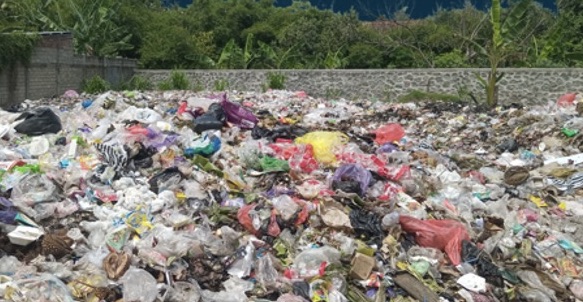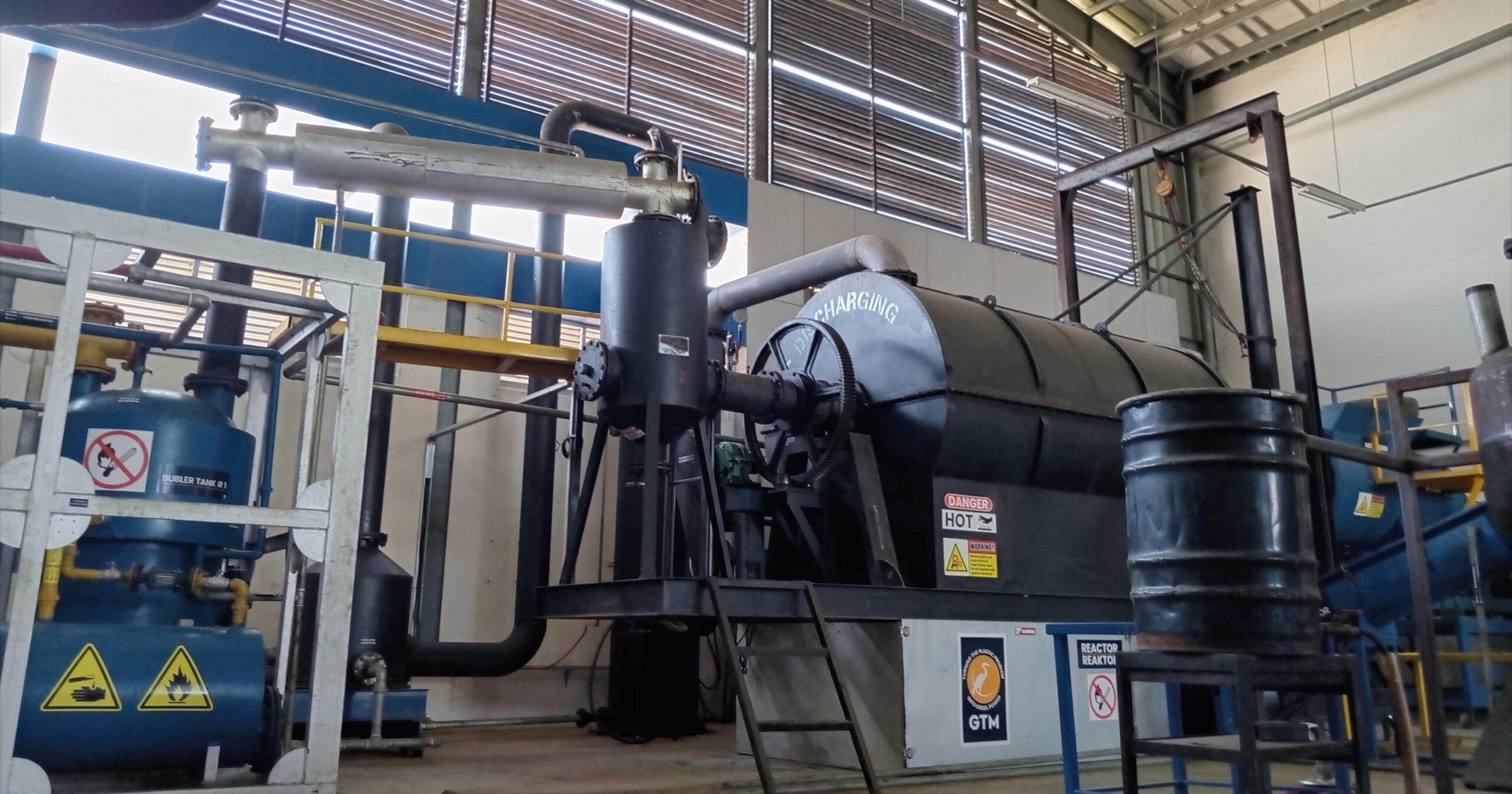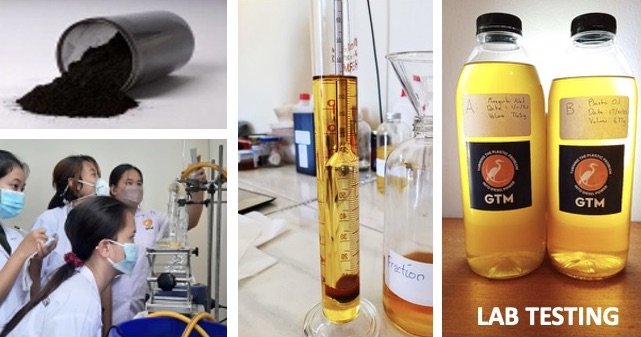Project Collection plastic waste for Pyrolysis in Lombok, Indonesia
This is a Community Plastic Management project to realize a household waste collection to harvest plastic waste as input for a Pyrolysis plant to convert non-recyclable plastics into fuel. It will build collection capability to collect plastic waste and create income and provide education and awareness.
The project provides:
- Build collection capability to collect plastic waste for the Pyrolysis plant in Lombok
- Create income for waste collectors, mainly housewives.
- Education and awareness for reduction and sorting waste in the community in Lombok.
Pyrolysis is used to convert non-recyclable plastics into diesel and oil. A refinery process converts pyrolysis oil into fuel. The Pyrolysis plant has been built and tested.
See project plan.
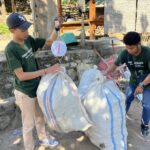
Background information
Rotary Club Mataram-Lombok collaborates with the company GTM and the NGO Ocean recovery to address plastic pollution in Lombok, Indonesia.
This 12-month project will expand existing efforts to engage 12 villages across 6 districts, engaging 10,000 participants in a ‘Harvest plastic’ program to reduce open burning, improve recycling rates, and convert 28+ tons of non-recyclable plastics into clean GEO Diesel fuel. The project aligns with Rotary’s focus on environmental sustainability, economic development, and gender equity, with an emphasis on community education, women’s leadership, and scalable solutions.
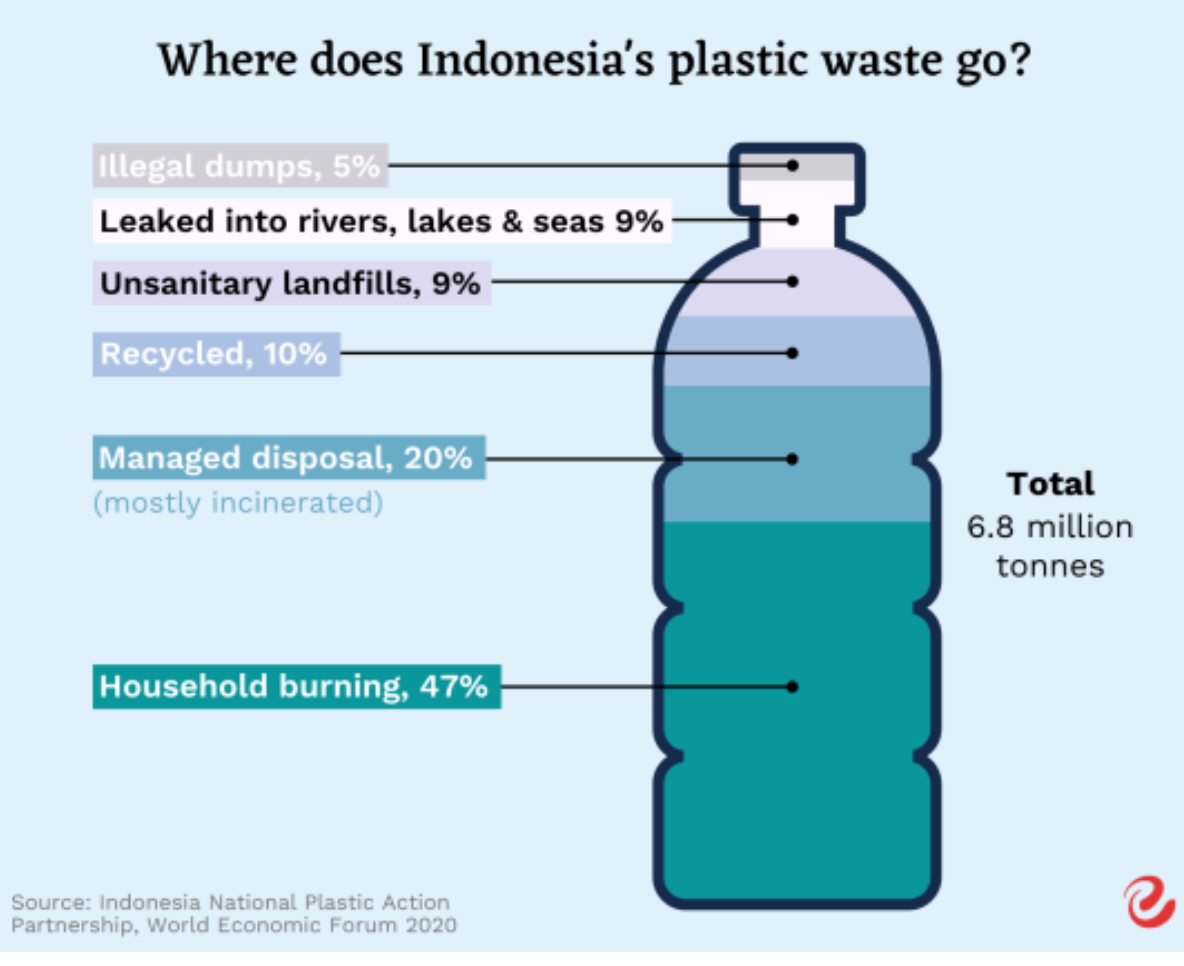
Project Objectives
- Reduce pollution: Maintain the existing 6 villages while enrolling 6 new villages to increase collection events to 12 per month.
- Boost Participation: Raise community engagement from 25% to 60%, targeting 10,000 participants.
- Empower Women: Train 200+ women as leaders in waste management and community education.
- Health & Environment: With the collected waste the community of Lombok diverts 50+ metric tons of plastic from open burning and landfills annually, recycling 28+ tons into GEO Diesel and 22 tons to conventional recycling facilities in Java.
- Sustainability: In order to be sustainable the project will generate income for the waste collectors and be profitable for the Pyrolysis plant.
Anticipated Outcomes & Benefits
- Benefits to Women
Leadership Development: Women trained as educators and project managers, enhancing social and economic agency.
Economic Opportunities: Income from direct plastic sales or prize incentives. - Health Improvements
Reduced Open Burning: Lower incidence of respiratory diseases linked to toxic fumes.
Cleaner Communities: Improved sanitation and reduced plastic litter in villages. - Environmental Impact
Waste Diversion: 50+ tons/year plastic repurposed.
Carbon Reduction: GEO Diesel production displaces fossil fuels, cutting CO2 emissions.
Sustainability & Scalability
- Revenue Streams: GEO Diesel sales and recyclable plastics will fund long-term operations.
- Local Ownership: Women-led teams ensure continuity beyond the project period.
- Partnerships: Collaboration with District Governments and Rotary networks to replicate the model.
- Sponsorship: Local commercial partnerships to sponsor event costs and prize pool contributions in exchange for media space and activities.
Budget and schedule
Project start is October 2025 and is completed by September 2026.
A budget of 4,500 USD is estimated per Community, while operational costs and resources are being covered by GTM and Harvest Plastic.
More information: Jeni Kardinal from RC Bali Action jenikardinal@gmail.com or Ala Robinfrom the RC Mataram Lombok ala.robin.froehlich@gmail.com
